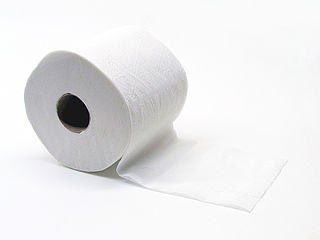Holding Back Urine (Restraining) Dangers, Damage, Tips
The urinary bladder is a hollow muscular sac that stretches to store urine. As it fills, we feel the urge to urinate. Most of the time we can resist this urge if it is not intense or until we are able to find a suitable environment to urinate, like the toilet. Sometimes we resist the urge even though it is intense. While the odd episode of holding back your urine may not be a problem, repeatedly doing so can lead to several health problems and even damage some of the organs of your urinary system.
Normal Urination vs Restraining Urination
Urine is constantly produced by the kidneys and passed down the ureters into the urinary bladder. As the bladder fills, its muscular walls stretch. It can distend to hold around 500mL (approximately 16oz) of urine although most of us will feel the bladder as being full when it fills with about 350mL (12oz) of urine. The stretch receptors within the bladder wall sends signals to the central nervous system which is responsible for the urging to urinate. As a result, most people urinate between 5 to 8 times daily, sometime more frequent and at other times less so.
The urge to urinate does not mean that a person has to urinate immediately. Urinating is a voluntary act. Every person has the ability to restrain urination until the setting is appropriate. Sphincters prevent urine from leaking out of the bladder just as it prevents backward flow of urine from the bladder up into the ureters. We all restrain urination for several reasons. However, there is a point where we no longer wish to restrain urination (voluntary urination) or no longer can restrain urination (involuntary urination) despite wanting to continue doing so.
The latter occurs in a healthy person once the bladder has reached is peak capacity. We inadvertently soil ourselves unless we find a place to pass out the urine into the environment. This involuntary urination needs to be differentiated from urinary incontinence where abnormalities exist that hampers a person’s ability to control urination. Restraining urination for long periods of time is never advisable. The odd episode may be harmless but repeated restraining can lead to a number of complications.
Reasons for Holding Back Urine
Holding back urine is a voluntary act. It should not be confused with conditions where the urine outflow from the bladder is inhibited which is a medical condition known as bladder outlet obstruction. A person may restrain urination for one or more of the following reasons:
- Unable to reach a toilet or suitable area to urinate, like when in a meeting or tied up with some other commitment.
- Not wanting to use toilet facilities available at the time for various reasons such as hygiene or security concerns.
- Fear of using the toilet to urinate related to security issues or psychological trauma.
- Avoiding urinary symptoms like burning or pain upon urination.
- Embarrassment about strong urine odor after urinating.
These are only some of the reasons why people restrain urination. There may be other factors at play as well.
Dangers and Damage
There are a number of consequences of holding back urination. It may arise over time and depends on a host of factors including the person’s age, pre-existing diseases and length of time that urination is restrained on a frequent basis. Ultimately it can lead to:
- Damage to the detrusor muscle of the bladder wall.
- Damage to the sphincter that prevents the bladder from emptying, as well as the sphincters that prevent backward flow into the ureters.
- Impaired ability to perceive the urge to urinate in the future.
- Swelling of a kidney as the urine accumulates within it since drainage is impaired.
- Increased risk of bladder infections or worsening of existing infection.
- Alterations in blood pressure and accumulation of toxins in the bloodstream.
Most of these complications never arise in a healthy bladder as involuntary urination will eventually occur to empty out the urine. Many people believe that the bladder can burst (rupture). However, this is unlikely to occur and is almost only seen in bladder trauma which arises with an injury to the pelvis or lower abdomen, like in a car crash.
Tips To Avoid Restraining Urine
Voluntarily holding urination is not seen as a medical condition unless it is caused by mental health issues. It therefore does not usually need medical treatment. We all restrain urination for various reasons but if you hold back emptying your bladder on a frequent basis then these dietary and lifestyle tips may be useful.
- Identify the reason why you hold back your urine. Become aware of the dangers and potential damage associated with restraining yourself. By making yourself conscious of your reasons and the dangers, it may assist you in overcoming any barriers where possible. Do not hesitate to seek professional help if you are restraining urination out of unjustified fear, paranoia and so on.
- Urinate before you leave for place where finding a toilet may be difficult or not possible. Even if your bladder is not full, try to empty out as much urine as you can in a toilet where you are comfortable. Even passing out only a small amount of urine may allow you additional time to restrain urination until you can find an appropriate setting to urinate.
- Limit water intake. Although sufficient water consumption during the course of the day is important for health reasons, it can also increase urination. Try to cut back on water consumption during the time when urination is not going to be desirable or possible. However, it is important to not restrict water altogether for long periods as it can lead to dehydration with life-threatening consequences.
- Avoid alcohol, caffeine and other substances that increase urination (diuretics). By doing so it will slow down bladder filling and help you restrain yourself until the time and situation permits to urinate. Some foods are also known to promote urine production and should therefore be avoided as well.
- Consider wearing an adult diaper. It is not the ideal choice for people who have complete bladder control and the ability to carry themselves to a toilet. However, if the situation is such urinating may not be possible for a period of time, an adult diaper is a better option to relieving yourself rather than restraining your urine repeatedly.


